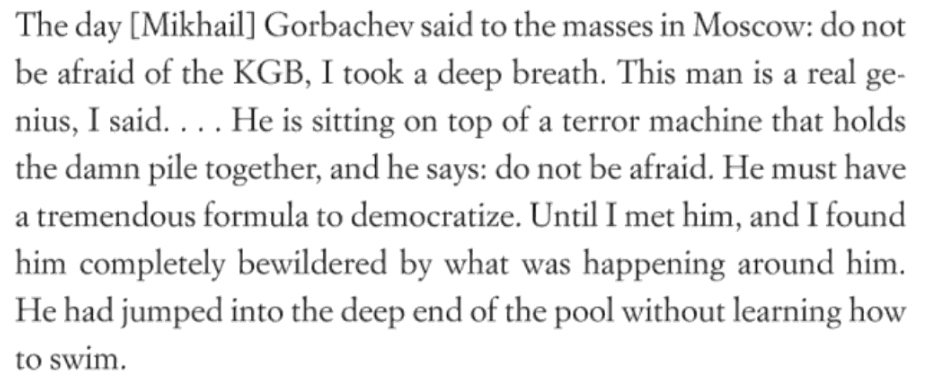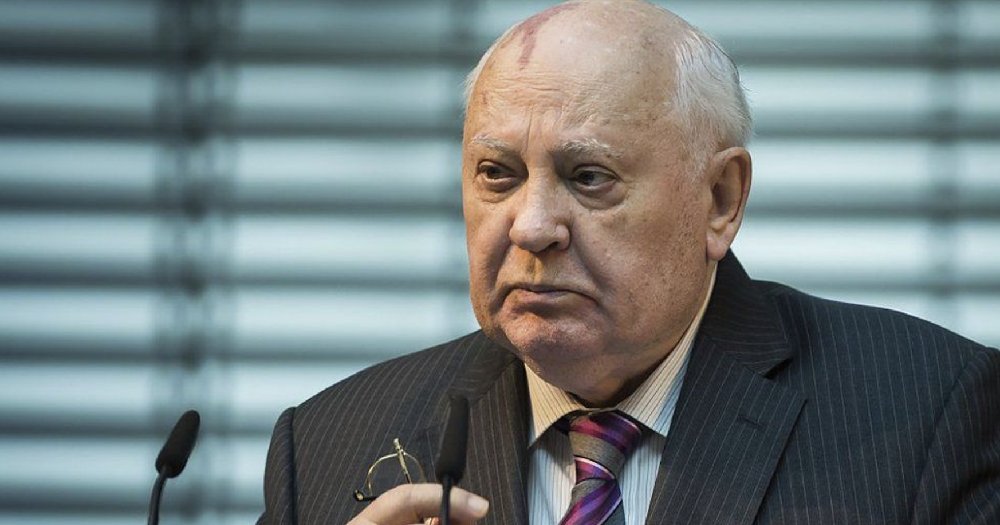Follow us on Telegram for the latest updates: https://t.me/mothershipsg
The last leader of the Soviet Union passed away early Wednesday (Aug. 31, Singapore time) at the age of 91, according to multiple news reports, including the BBC and Reuters.
According to Russian state-owned news agency TASS, which Fortune cited, Mikhail Gorbachev died at the Central Clinical Hospital in Moscow -- considered to be the best hospital in Russia -- following "a severe and prolonged illness".
He was widely credited to have brought an end to the Cold War, but also criticised for failing to prevent the collapse of the Soviet Union.
Mixed legacy
His attempts to transform the country's political and economic system through a series of policies known as perestroika and glasnost -- meant to drive the economy and foster open discussion of political and social issues -- brought about political transformations that saw Soviet rule ending a mere two years later.
As a result, he was highly unpopular at home, even though he was perceived much more favourably overseas -- he was known as the man who broke down the "iron curtain" that separated Soviet Union from the West.
His unpopularity started even before the Soviet Union's dissolution, as the population suffered under a poor economy, although the economic system was already in stagnation for many years before he took over.
A state-run pollster ranked him as the most unpopular Russian leader of the past century, The Guardian reported. Also, in a 2021 poll, more than 70 per cent of Russians said the country moved in a negative direction under his governance.
Met with Lee Kuan Yew in 1990
Adding to the many accounts of Gorbachev as a leader is an account by Singapore's late founding Prime Minister Lee Kuan Yew.
In a book written by renowned American political scientist Graham Allison and analysts Robert Blackwell and Ali Ayne titled "Lee Kuan Yew: The Grand Master's Insights on China, the United States, and the World", which they wrote after they interviewed Lee, Lee said he had a different impression of Gorbachev until the time he met him in September 1990.
Recounting the moment when Gorbachev told the people in Moscow not to be afraid of the KGB, the Soviet foreign intelligence and domestic security agency, Lee said the Russian leader had said those words despite "sitting on top of a terror machine", therefore he "must have a tremendous formula to democratise".

However, after the two met in Moscow, Lee found him to be "completely bewildered by what was happening around him". Demonstrations had broken out against the Soviet government, resulting in civil unrest and clashes with military troops.
"He had jumped into the deep end of the pool without learning how to swim," Lee said.
Recalling his meeting with Gorbachev in the book "From Third World to First: The Singapore Story: 1965-2000", he wrote that Soviet officers were apologetic as Gorbachev was late. But Lee reassured them, telling them not to worry as they were "witnessing the end of an empire".
He further said that he thought Gorbachev had made a "fatal mistake" by going for glasnost (openness) before perestroika (restructuring), and then-Chinese paramount leader Deng Xiaoping was wiser for doing it the other way round.
In their meeting, he complimented Gorbachev for not using military might to solve his problems.
He wrote, "I marvelled that such a decent man could reach the top of so evil a system," adding that "a lesser leader" would have sought to resolve the Soviet Union's problems by using its huge military capabilities.
Lee also wrote that ultimately, the Soviet Union's collapse did not affect Singapore as the two countries had few economic links.
Top image via Getty Images
If you like what you read, follow us on Facebook, Instagram, Twitter and Telegram to get the latest updates.
